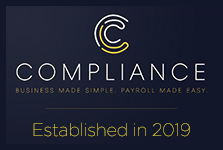Press Archive
- Top Drivers Honored at WV Truck Driving Championship
- State Driving Champions & Safety Award Winners
- Heavy Vehicle use Tax Return Form 2290 E-Filing Solutions for Truckers from WVTA
- WV Trucking Association Recognizes Drivers During 2020 National Truck Driver Appreciation Week Sept. 13-19
- A Thank You from UPS Public Affairs
- National Truck Driving Championship Cancelled
- 2019 WV Truck Driving Championship Winners
- I-81 Fuels Tax Increases Start July 1st!
- SPOTTED LANTERNFLY: PERMITTING & COMPLIANCE - ALL CARRIERS WELCOME
- 2 Million Mile Safe Driver - James (Danny) Roberts
- Traci Nelson: Trucking industry needs the DRIVE Safe Act
- Two Million Mile Safe Driver - Jeff Smith
- WV Trucking Association Announces State Driving Champions & Safety Award Winners
- America’s Big Game Delivered By Trucks
- The West Virginia Transporter 2017
- WV OMEGA Appoints Daniel Hall Director of Government Affairs & Membership Development Coordinator
- WV OMEGA Appoints Traci Nelson President
- West Virginia Truck Drivers Gearing up for Industry's Top Prize ATA Welcomes State Champs to Orlando for National Truck Driving Championships
- WVTA Offers Safe Driving Tips for Upcoming Holiday Weekend
- WV Trucking Professionals to Test Skills In Driving Competition at the Winjean Trucking Company in Buckhannon, WV
- Highs and Lows: Trump's love of trucks
- WVTA Buyers’ Guide
- WVTA Year End Review 2016
- ATA's Holiday Safe Driving Tips
- ATA Thanks Congress for Advancing a Permanent Hours-of-Service Fix Bipartisan Effort Will Improve Industry's Safety and Efficiency
- WVTA Announces Designation of Exclusive Publisher and Advertising Sales Agent for WVTA Buyers' Guide
- West Virginia Trucking Association Recognizes National “Operation Safe Driver Week” Oct. 16-22
- Driver-Focused Inspection Blitz October 16th - 22nd
- Health Groups Sue FDA Over Cigarette Warning Labels
- WVU Researchers Present Tepid Economic Outlook
- ATA President Outlines Vision for Trucking, Federation Spear Calls for Unity and Strength in Annual State of the Industry Address
- WV Trucking Association Elects New Officers
- Gov. Tomblin Honors State Trucking Industry
- Truck Driver Appreciation Week
- National Roadside Truck Brake Enforcement Blitz September 11th - 17th
Legislative Summary 2024
| Legislative Update 3-11-24 AS.pdf Popular 614.14 KB | 07/10/2024 |
Legislative Summary 2023
The 1st regular legislative session of the 86th Legislature is now complete. The Republicans own super majorities in both houses, but other than the suspension of rules to pass a few bills quicker, there has not been substantial use of this power. A few of the big issues this session that legislators have tackled are a new income tax plan, the Public Employees Insurance Agency (PEIA), Department of Health and Human Resources reorganization (DHHR), a new economic development plan to bring Form Energy to West Virginia, the beginning of a plan to bring electric-producing natural gas facilities to the state, new deliberate intent legislation, and a pay raise to state officials.
Legislative Summary 2022
Saturday at midnight marked the completion of the West Virginia Legislature’s Regular Session. With over 2000 bills introduced, there are plenty of methods to summarize the work accomplished over the last two months in Charleston. Here are some of the numbers that best wrap-up this legislative session:
Legislative Summary 2020
The 2020 Regular Legislative Session proved to be extraordinarily busy in that a record 355 bills were sent to Governor Justice’s desk for a signature.
Below is a summary of the highpoints.
On March 7th , The House concurred with the Senate amendments to Senate Bill 150, the Budget Bill, and completed legislation on it.
The Budget Bill allocates $108 million to fully eliminate the wait list for the I/DD Waiver. This was a priority for this session by both bodies of the legislature and Governor Jim Justice. The budget allocates $16.8 million for the foster care system within the state under House Bill 4092. The budget also provides $3.3 million to fund a second location for the Mountaineer Challenge Academy, which is a program that trains and mentors at-risk youths from the ages of 16-18 in a 22-week program.
Legislative Summary 2021
The first regular session of the 85th Legislature is now in the books, as both the House and Senate adjourned at midnight Saturday April 10, 2021. A total of 2,039 bills introduced, with 281 being sent to the Governor, 78 of which have already been signed into law.
Obviously, COVID related legislation was at the top of agenda. Capitol building access was limited due to capacity restrictions, social distancing and other CDC recommended protocols. Several legislative initiatives were advanced to encourage remote workers, and much needed broadband expansion through House Bill 2002, as well as Senate Bill 277- Creating COVID-19 Jobs Protection Act, the Governor’s bill for COVID-19 liability reform. This legislation provides a liability shield for employers in West Virginia for claims that may arise due to the COVID-19 pandemic.
Legislative Summary 2019
The first regular session of the 84th Legislature is now in the books, as both the House and Senate adjourned at midnight Saturday March 9, 2019. A total of 1,823 bills were introduced, with 294 being sent to the Governor (per the House Clerk, this is the highest number since 2002).
Once again education was a hot topic at the Capitol. The Legislature sent SB 1 to the Governor, which provides tuition assistance for post-secondary education. Another attempt was made at education reforms (including Charter Schools and Education Savings Accounts “ESAs”), only for the bill to die on a procedural vote in the House. In response to the proposed reforms, the state’s two largest educator unions called for a work stoppage that lasted two days.
Several tax reductions were adopted this year including: Social Security, Steam Coal Severance, Marginal Oil and Gas Well Severance, Annuity Tax by Life Insurer, Limestone Severance and the Petroleum Evaporation Tax Refund. There were also significant changes regarding the sale of alcohol adopted this year, including the sale of liquor on Sundays.






